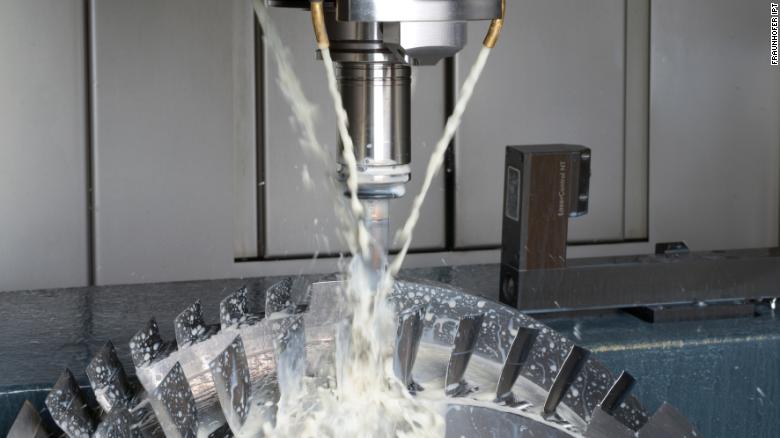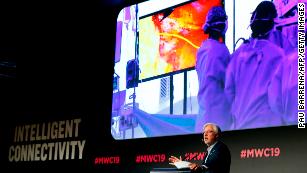How 5G will transform manufacturing
London (CNN Business)5G networks that transform entertainment, communication and transportation may still be years away. But in manufacturing, the technology is already making a difference.
Next-generation 5G networks can be 100 times faster than 4G, making communication between devices and servers much faster. The networks can be installed in relatively small areas — like a factory — without too much fuss.
The combination of speed, practicality and potential cost savings is encouraging factory operators to experiment with 5G. The results have been positive, suggesting the tech may be widely used in factories before smartphones and other consumer products, especially because surveys show many consumers are not yet willing to pay more for 5G.
Ericsson, one of the word's biggest providers of 5G equipment, teamed up on one early test with the Fraunhofer Institute for Production Technology in Germany.
The experiment involved a factory that makes metal bladed disks for jet engines. The large components are made in a process called metal milling, which takes up to 20 hours to complete and requires extremely precise cuts to be made in metal components.
The procedure has a high error rate: up to 25% of the blades have to be reworked because of faults caused by small vibrations. Often, mistakes are not detected until the end of the process, meaning much effort is wasted on completing flawed blades.
But by placing sensors that use 5G directly on the components or tools, Ericsson was able to detect faults in real time and reduce the error rate to just 15%. The average production cost of a blade was reduced by €3,600 ($4,075).
The speed and reliability of 5G networks means there is virtually zero latency, or lag time, between devices and the servers they communicate with. And that's what makes the technology so useful to manufacturers.
"With one millisecond latency, you can sense whether there is a deviation in the process before the tool even hits the blade and you can stop the machine before the error happens," said Åsa Tamsons, a senior vice president at Ericsson.
Nishith Tripathi, a mobile wireless technologies expert at Award Solutions, said that only 5G can deliver the performance needed in factory settings.
"4G can simply not do the job, you need the high speed and low latency of 5G to deliver this kind of application," he said.
Two more features make 5G ideal for use in factories: The networks are relatively easy to install, and they can support a huge number of devices.
Buildings the size of most factories can be virtually "wrapped" with a 5G network via an antenna placed on the roof. That's much easier than other potential 5G applications, such as self-driving cars, which would require a huge number of roads to be lined with 5G equipment.
Tripathi said 5G technology also allows for a massive number of connections at the same time. If every piece of equipment in a factory needs to be connected, 5G networks can handle the burden.
Ericsson isn't the only company that's experimenting with the technology. A Bosch factory in Worcester, England started 5G trials last month. And in Austin, Texas, Samsung is working with AT&T, CNN's parent company, to create a 5G manufacturing "innovation zone."
"When you talk about 5G experiences like holograms, virtual reality, the things you and I will experience, we will have to wait a couple of years, but for businesses, it's now and here," said Tripathi.
'지식 > 시사' 카테고리의 다른 글
| 태림포장의 사례로 본 M&A의 적정가격(1) (0) | 2020.05.03 |
|---|---|
| 스마트폰 영업이익 차이 왜? (0) | 2019.11.06 |
| What is 5G? (0) | 2019.03.27 |
| 미국의 학부/석사생들이 직장 구하는법을 알아보자!! (2편 - 면접 멘탈리티) (0) | 2019.02.28 |
| 미국의 학부/석사생들이 직장 구하는법을 알아보자!! (2.5편 - Fit이란 무엇인가) (0) | 2019.02.28 |



